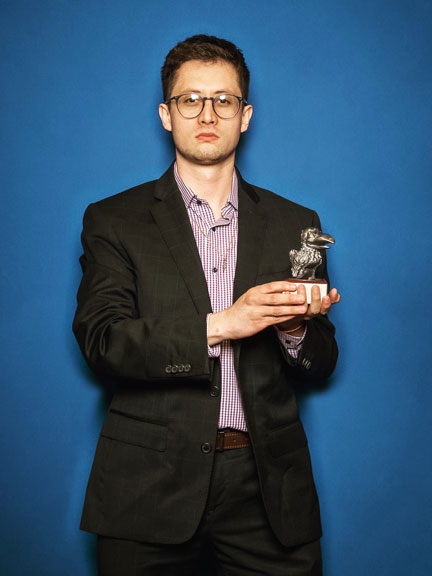Rafael Díaz Hernández
Assistant Laboratory Professor

- Office
- McCardell Bicentennial Hall Q Center 166
- rdiazhernandez@middlebury.edu
- Office Hours
- Spring 2026: Tuesday 11am – 12pm, Wednesdays 2:00pm – 4pm or by appointment
Courses Taught
CHEM 0205
Organic I: Struct & Reactivity
Course Description
Organic Chemistry I: Structure and Reactivity
In this course we will provide students with an introduction to the structure and reactivity of organic molecules sufficient to continue directly to the study of biochemistry (CHEM 0322). Topics covered will include models of chemical bonding, acid-base relationships, three-dimensional molecular structure (conformations and stereochemistry), reaction mechanisms and energy diagrams, substitution and elimination reactions, carbonyl reactions (additions, reductions, interconversions, and alpha-reactivity), and the fundamentals of biological molecules (carbohydrates, DNA, and RNA). Laboratory experiments will relate to purification techniques (recrystallization, distillation, extraction, and chromatography), as well as microscale organic reactions that complement the lecture material. (CHEM 0104 or CHEM 0105 or CHEM 0107) 3 hrs. lect., 3 hrs. lab. (formerly CHEM 0203)
Terms Taught
Requirements
CHEM 0305
Current
Organic II: Synthesis & Spect.
Course Description
Organic Chemistry II: Synthesis and Spectroscopy
In this course students will explore how organic molecules are made and their structures are identified. The study of organic reactions will continue from CHEM 0205 with radical reactions, alkene and alkyne additions, aromatic reactions, oxidations, reductions, and additional carbonyl reactions. Emphasis will be placed on using reactions in sequences to synthesize larger and more complex molecules. The theory and practice of mass spectrometry and UV-Vis, IR, and NMR spectroscopy will be studied as a means to elucidate the exact structures of organic molecules. Laboratory experiments will focus on synthetic techniques that complement the lecture material and the identification of complex unknowns via spectrometry and spectroscopic techniques. (CHEM 0203 or CHEM 0205) 3 hrs. lect., 3 hrs. lab. (formerly CHEM 0204)
Terms Taught
Academic Degrees
The University of Kansas - Ph.D. in Chemistry
Universidad Autónoma del Estado de México, México - B.S. in Chemistry
Publications
RD Hernández, A Singh, M Caricato, JA Tunge. Organic Letters, 2025, 27, 8574-8579. Subtle Strain-Release-Driven Aroylation of Four-Membered Rings via Decarboxylative Giese-Type Reactions.
E Joseph, RD Hernández, JA Tunge. Chemistry A European Journal, 2023, 29, e202302174. Cobalt‐Catalyzed Decarboxylative Allylations: Development and Mechanistic Studies.
AM Davies, RD. Hernández, JA Tunge. Chemistry A European Journal, 2022, 28, e202202781. Direct Aroylation of Olefins through a Cobalt/Photoredox‐Catalyzed Decarboxylative and Dehydrogenative Coupling with α‐Oxo Acids. Front Cover.
RD. Hernández, I Zaragoza‐Galicia, HF Olivo, M Romero‐Ortega. Chemistry Select, 2017, 31, 10067-10070. Reduction of Trichloromethyl to gem‐Dichloromethyl Group with Triphenylphosphine and Water in Ethyl Acetate.
